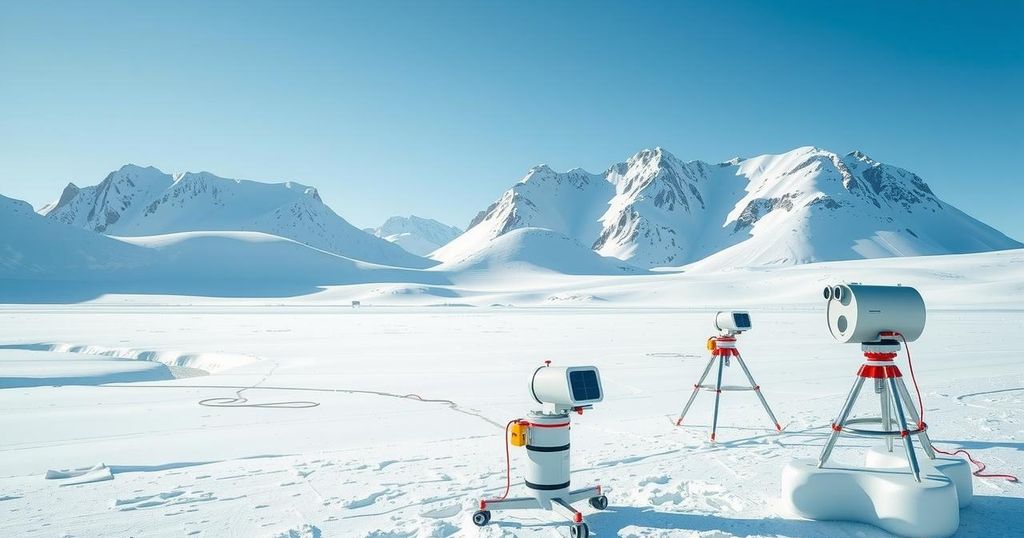The Importance of Antarctic Research in Addressing Climate Change Challenges

Research at South Africa’s Sanae IV base in Antarctica focuses primarily on climate change, utilizing the region’s unique environment and remoteness to study global systems. Approximately 30 countries collaborate at various research stations, with significant findings including the ozone hole discovery and ice cores revealing historical climate patterns. The extreme conditions researchers face in Antarctica are offset by the necessity of understanding its global influence on climate and ocean systems.
In March 2025, a significant media storm emerged when a researcher at South Africa’s Sanae IV base in Antarctica accused a fellow team member of violent behavior. To explore the purpose and findings of researchers in this isolated region, The Conversation Africa consulted geomorphologist David William Hedding, an experienced researcher in Antarctic studies.
Currently, the predominant focus of Antarctic research is climate change, as this region serves as an effective indicator of global climatic shifts. The Antarctic environment is unique and extremely sensitive to variations in global climate and atmospheric conditions. Additionally, the area’s remoteness allows scientists to observe natural systems with minimal human intervention. Its geographical context facilitates studies on phenomena such as space weather, which can significantly influence technology and human health due to its impact on Earth’s magnetic field.
Approximately 30 nations operate research stations in Antarctica, contributing to a broader scientific community. Collaboration is essential due to the isolation and logistical challenges that researchers encounter. The South African SANAE IV base generally accommodates between 10 and 12 researchers, situated on a nunatak in Western Dronning Maud Land, around 220 km from the ice shelf. Researchers typically remain in Antarctica for about 15 months, enduring the harsh winter conditions.
Some notable discoveries from Antarctic research include the identification of the ozone hole in 1985 by the British Antarctic Survey, which led to the Montreal Protocol’s implementation. This treaty aimed to reduce chlorofluorocarbons, promoting the gradual healing of the ozone layer. Additionally, ice core analysis has provided valuable insights into atmospheric conditions over the past 1.2 million years, enabling scientists to better understand historical climate responses and predict future changes stemming from anthropogenic climate impacts.
Research in Antarctica poses considerable challenges due to its remoteness, severe cold, and perpetual daylight during summer months. Accessibility to many sites is complicated due to vast distances from the research bases, demanding collaborative logistics. For instance, geologists from the University of Johannesburg often undertake extended fieldwork requiring self-sufficiency during stringent conditions. Research primarily occurs in the austral summer when temperatures are slightly more favorable, although this season offers a limited time frame for operations.
Scientific endeavors in Antarctica are crucial because the region is closely linked to global systems, significantly influencing climate and oceanic changes. For example, the melting of land-based ice in Antarctica can lead to rising sea levels and fluctuations in global oceanic currents. Understanding these terrestrial responses is vital to predict impacts on ocean ecosystems, ultimately affecting the ocean food web. Investigating the consequences of climate change is imperative for developing society’s resilience to adapt to these global challenges.
In conclusion, the research conducted in Antarctica is pivotal for understanding climate change and its far-reaching effects on global systems. The collaboration among international researchers at stations like SANAE IV facilitates vital discoveries that contribute to mitigating human-induced climate threats. The challenges posed by the Antarctic environment underscore the importance of these scientific efforts to build resilience against ongoing global changes.
Original Source: allafrica.com






